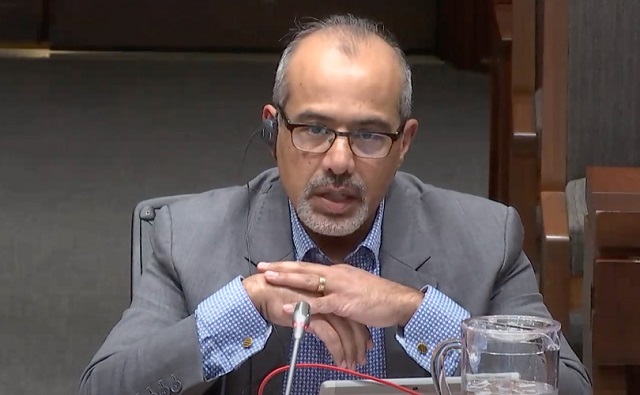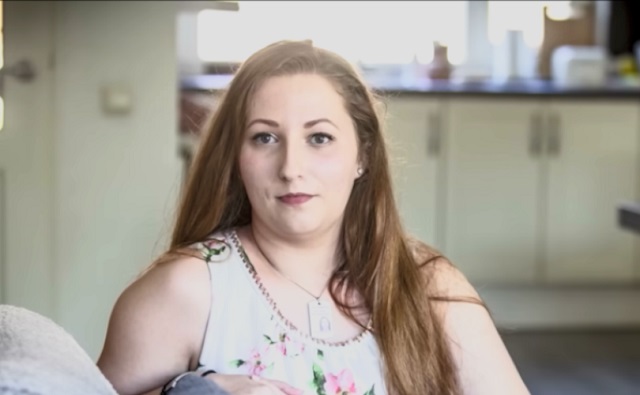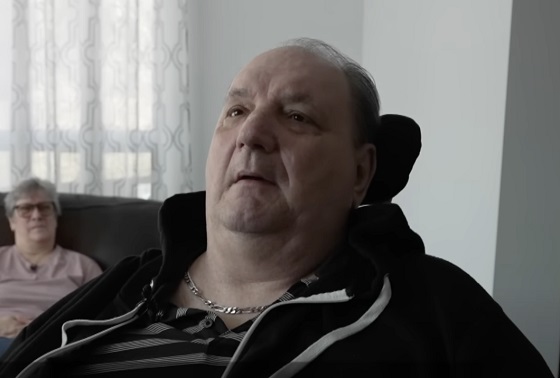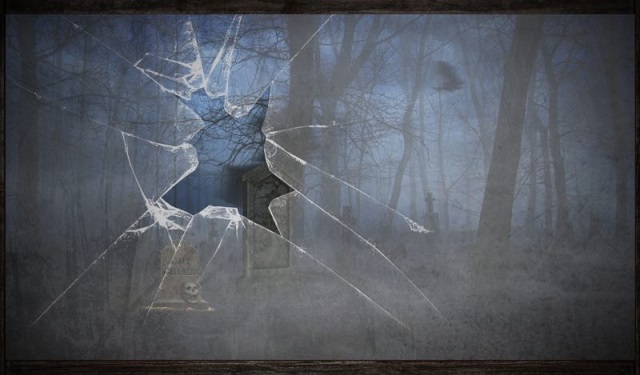MAiD
MAiD advocate speaks out against expansion of euthanasia to the mentally ill

Professor Sonu Gaind
From LifeSiteNews
By and
‘not so much a slippery slope as a runaway train.’
A leading Canadian psychiatrist has testified that Canada is “not ready” to offer euthanasia to the mentally ill.
Doctor K. Sonu Gaind, who supports euthanasia under certain circumstances, testified on November 28 before the Special Joint Committee on Medical Assistance in Dying (MAiD) in Ottawa against expanding the practice.
“This expansion is not so much a slippery slope as a runaway train,” he declared.
Gaind underscored that he is not a “conscientious objector” to euthanasia and that he was the chair of his prior hospital’s MAiD team. His principal concern is to protect those with mental illness.
“MAiD is for irremediable medical conditions, ones that we can predict won’t improve,” he said.
“Worldwide evidence shows we cannot predict irremediability in cases of mental illness, meaning the primary safeguard underpinning MAiD is already bypassed,” he continued.
The leading psychiatrist added, “Scientific evidence shows we cannot distinguish suicidality caused by mental illness from motivations leading to psychiatric MAiD requests … .[There are] overlapping characteristics suggesting there may be no distinction to make.”
RELATED: Top Canadian psychiatrists urge gov’t to halt expansion of euthanasia to the mentally ill
Gaind directly addressed the claims of “discrimination” made by those in support of the expansion of MAiD, including Senator Stanley Kutcher and Dr. Mona Gupta.
“MAiD assessors will be wrong over half the time when predicting irremediability, will wrongly believe they are filtering out suicidality, and will instead provide death to marginalized suicidal Canadians who could have improved,” he said.
“That is the ultimate discrimination.”
Gaind also took issue with statements made by Dr. Jocelyn Downie, a leading euthanasia activist and Trudeau Foundation Fellow.
“Professor Downie claimed, ‘Irremediability is a legal term rather than a clinical concept.’ Try those mental gymnastics on your constituents,” Gaind said dryly.
“Convince them it was okay their loved ones with mental illness got MAiD, not because of a clinical assessment based in medicine or science, but on the ethics of the particular assessor.”
Gaind criticized the euthanasia curriculum used by the Canadian Association of MAiD Assessors and Providers (CAMAP) for not teaching users how to differentiate between “suicidality” and “psychiatric MAiD requests.”
“A key problem with psychiatric MAiD assessments [is] the hubris of the assessor thinking they can determine irremediability and distinguish suicidality from psychiatric MAiD requests, when evidence shows they can do neither,” he said.
Based on all the evidence, Gaind is convinced that direct euthanasia should not be offered to the mentally ill.
“I’ve reviewed our legislation, the Health Canada practice standard, and the CAMAP training for MAiD for mental illness,” he said. “As someone who supports MAiD in general, I assure you: we are not ready.”
Gaind included in his fast-paced, passionate speech an admonishment of those who support expansion of MAiD.
“An echo chamber has driven expansion with reassurances but no safeguards,” he asserted. “It’s reassurance theatre.”
Gaind is a University of Toronto governor and professor of psychiatric medicine. In addition, he is Chief of the Department of Psychiatry at Toronto’s Sunnybrook Health Sciences Centre and past president of Canadian Psychiatric Association.
Former Bill C-7, which allows for euthanasia on the grounds of mental illness, was passed into law in early 2021. However, the eligibility of the mentally ill to be killed was delayed for two years. The exclusion was extended in February 2023 and then extended again in March to last until March 17, 2024.
In October this year, Conservative MP Ed Fast introduced Bill C-314, an effort to “amend the Criminal Code to provide that a mental disorder is not a grievous and irremediable medical condition for which a person could receive medical assistance in dying.”
When put to a vote, the Bill was defeated 167 to 150.
International
28-year-old Dutch woman to be killed by assisted suicide after doctors deem her autism ‘untreatable’

28-year-old Dutch woman Zoraya ter Beek (YouTube Screenshot)
From LifeSiteNews
28-year-old Zoraya ter Beek plans to die by assisted suicide over her struggles with depression and mental illness, a trend which is increasing in The Netherlands.
A 28-year-old autistic woman is scheduled to die by assisted suicide in May in The Netherlands after struggling with depression and mental illness, with her psychiatrist telling her that her condition is untreatable and will never improve.
Zoraya ter Beek, who does not suffer from any physical illness, has decided to end her life by assisted suicide after psychiatrists said they had exhausted any means of helping her deal with her mental illnesses, which includes borderline personality disorder, according to The Free Press.
Her struggles with mental illness have prevented her from being able to finish school or start a career.
READ: Canadian judge blocks imminent euthanasia death of 27-year-old autistic woman
In testimony to the nihilistic attitude adopted in the choice to end her own life on account of suffering, Ter Beek has decided that after she has been killed, her body will be cremated without a funeral and her ashes scattered in the woods.
Ter Beek’s choice to take her own life comes despite her admitted fear of death arising from the uncertainty of what happens after death.
“I’m a little afraid of dying, because it’s the ultimate unknown,” she said. “We don’t really know what’s next – or is there nothing? That’s the scary part.”
The diagnosis of autism and mental illness as “untreatable” and “unbearable” has become an increasing trend in The Netherlands, with a study published in June 2023 revealing 40 cases over a 10-year period from 2012 to 2021. In a third of those cases, those with autism or intellectual disabilities were told there was no hope of improving their lives, and so their condition was deemed “untreatable.”
READ: Autistic people in the Netherlands are being euthanized: report
Irene Tuffrey-Wijne, a palliative care physician at Britain’s Kingston University, who led the study which examined 900 cases, said, “There’s no doubt in my mind these people were suffering. But is society really OK with sending this message, that there’s no other way to help them and it’s just better to be dead?”
Tim Stainton, director of the Canadian Institute for Inclusion and Citizenship at the University of British Columbia, added, “Helping people with autism and intellectual disabilities to die is essentially eugenics.”
The scheduled killing of the 28-year-old autistic woman comes as The Netherlands continues to expand the scope of what legally qualifies for euthanasia, with a new law effective February 1 allowing the killing of terminally ill children aged 1 through 12 who are deemed to be “suffering hopelessly and unbearably.”
The law allows parents to decide to kill their child even if the child is unwilling or unable to consent.
Health
Quadriplegic man dies via euthanasia after developing bed sores waiting at Quebec hospital

66-year-old Quebec man Normand Meunier who died via euthanasia after a 4-day hospital stay left him with severe bed sores
From LifeSiteNews
‘I don’t want to be a burden,’ the 66-year-old man said prior to his death after he developed bed sores due to a lack of specialized care at a hospital in Saint-Jérôme, Quebec.
A quadriplegic man in Quebec was killed via euthanasia after he developed severe bed sores while waiting in a hospital for an extended period of time.
On March 29, Normand Meunier, a 66-year-old quadriplegic man in Quebec, was euthanized in his home after developing bed sores due to a lack of specialized care at the hospital in Saint-Jérôme, Quebec, according to a report by Radio-Canada.
“I don’t want to be a burden. At any rate, the medical opinions say I won’t be a burden for long; as the old folks say, it’s better to kick the can,” Meunier told Radio-Canada in an interview the day before he was killed.
Meunier, whose arms and legs have been paralyzed since 2022 due to a spinal cord injury, went to the hospital’s intensive care for a respiratory virus. According to his partner Sylvie Brosseau, the hospital placed Meunier on a stretcher for 95 hours.
Bosseau revealed that she asked medical staff to provide a specialized bed for Meunier but was told that the hospital would have to order one. According to the hospital, they are investigating the incident, adding that they do have beds available.
After spending four days on a hospital cot, Meunier developed bed sores and a major pressure ulcer on his buttocks, which were so severe that the muscle and bone were exposed and visible.
While Meunier had previously experienced bedsores, he determined to end his life via Medical Assistance in Dying (MAiD), the euphemistic name for Canada’s euthanasia regime, rather than continue to receive treatment.
Unfortunately, Meunier is not the first Canadians to choose MAiD after being given insufficient medical care.
As a result of a healthcare worker shortage, wait times to receive care in Canada have increased to an average of 27.7 weeks, leading some Canadians to despair and opt for euthanasia instead of waiting for assistance.
This was the case of 52-year-old Dan Quayle, a grandfather from British Columbia. On November 24, he chose to be killed via lethal injection after being unable to receive cancer treatment due to the increased wait times.
Throughout the agonizing wait, his family “prayed he would change his mind or get an 11th-hour call that chemo had been scheduled,” but were instead told consistently by the hospital that they were “backlogged.”
Similarly, in 2022, a Winnipeg woman wrote in her posthumously published obituary that she chose to die by assisted suicide after being refused the treatments she needed: “I could have had more time if I had more help.”
However, instead of supporting the healthcare system to prevent Canadians from taking their own lives, the Trudeau government is working to expand access to MAiD by loosening its requirements.
On March 9, 2024, MAiD was set to expand to include those suffering solely from mental illness. This is a result of the 2021 passage of Bill C-7, which also allowed the chronically ill – not just the terminally ill – to qualify for so-called doctor-assisted death.
After massive pushback from doctors, pro-life groups and politicians, the program’s expansion was temporarily paused until 2027.
According to Health Canada, in 2022, 13,241 Canadians died by MAiD lethal injection, which is 4.1 percent of all deaths in the country for that year, and a 31.2 percent increase from 2021.
The number of Canadians killed by lethal injection since 2016 now stands at 44,958.
-

 COVID-192 days ago
COVID-192 days agoWHO Official Admits the Truth About Passports
-

 Energy2 days ago
Energy2 days agoAnti-LNG activists have decided that they now actually care for LNG investors after years of calling to divest
-

 Freedom Convoy2 days ago
Freedom Convoy2 days agoOttawa spent “excessive” $2.2 million fighting Emergencies Act challenge
-

 Brownstone Institute2 days ago
Brownstone Institute2 days agoIs the Overton Window Real, Imagined, or Constructed?
-

 Censorship Industrial Complex2 days ago
Censorship Industrial Complex2 days agoDesperate Liberals move to stop MPs from calling Trudeau ‘corrupt’
-

 conflict1 day ago
conflict1 day agoCol. Douglas Macgregor torches Trump over support for bill funding wars in Ukraine and Israel
-

 Frontier Centre for Public Policy1 day ago
Frontier Centre for Public Policy1 day agoThe end of Canada: The shift from democracy to totalitarian behavior in the ‘pandemic era’
-

 Energy1 day ago
Energy1 day agoReflections on Earth Day





